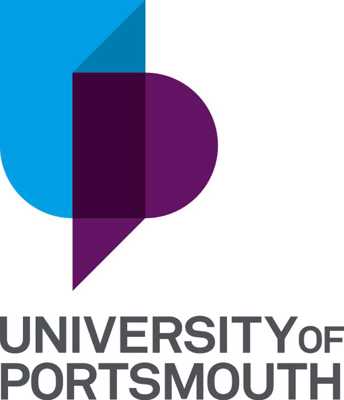Vertically Integrated Governance Group and Active Career Stage Fora
The University of Portsmouth is a modern University employing 120-140 Research Staff, depending largely on the number and type of externally funded research grants and contracts. Recognising that our existing structures were not delivering the levels of engagement necessary to deliver on the aspirations in our Concordat Action Plan, we redesigned the group that has oversight and governance of researcher development to bring in representation from PhD through to Professor, reinvigorating career stage fora.

What kind of an organisation are you in the context of the Concordat?
The University of Portsmouth is a modern university with a growing research base and a reputation for excellence. In 2020, following a period of consultation with all staff and many stakeholders, we launched our new University Vision 2030, and University Strategy 2020-25. At any given time, the University employs 120-140 Research Staff, depending largely on the number and type of externally funded research grants and contracts.
We have retained the HR Excellence in Research award since 2013, and have continued to document and monitor progress against the Concordat principles. We successfully renewed the award at the two-year (2015), four-year (2017), six-year (2019) and eight-year stages (2021).
In the 2019-21 Action Plan, we placed a particular emphasis on support for Research Staff whilst recognising that such staff are part of the wider research community that extended to include academic staff at different career stages. In the 2021-23 Action Plan, we have further sharpened the focus on Research Staff.
What challenge were you trying to address with this initiative?
Our existing committee with oversight of the Concordat was narrowly focused and wasn’t always able to capture the imagination and buy-in of the community it served. Furthermore, the fora designed to engage the research staff and early career stages had lost its identity and wasn’t sufficiently supporting its constituent communities, despite input from a hardcore of motivated individuals.
What did you do and how does this align with the Principles and keywords you have selected below?
We took a number of steps that, together, have created a more vibrant and engaged oversight group that has comprehensive coverage of the academic research career lifecycle from PhD to Professor:
- Redesigned the group that has oversight and governance of researcher development with terms of reference reflecting a wider context of environment and culture rather than a narrow bureaucratic focus on the Concordat.
- Re-launched Research Staff Forum and Researchers’ Networks with renewed energy and support, to engage the contract researcher and early-mid career communities respectively.
- Engaged the Readers’ and Professors’ fora in the life of the oversight group to provide a ‘vertically integrated’ group that covered all career stages.
- Prepared a new Concordat action plan that pulled together three strands: stakeholder feedback, Concordat gap analysis and University Strategy. The action plan was first prepared as a simple standalone document that was designed to engage and capture the imaginations of stakeholders, before being mapped into the Concordat pro-forma. Typically this had been done the other way around, leading to a fragmented action plan which did not connect sufficiently with institutional context or imperatives.
What were the challenges in implementation and how did you resolve them?
The main challenge was to recognise that the existing approach was not working very well. Once we’d decided on how we wanted to approach researcher development, the various pieces fell into place. The key to this was dialogue with key stakeholders ahead of and during the process of agreeing the new Terms of Reference and membership of the oversight group, and in the formation of the action plan.
How did you evaluate the impact of your initiative?
The early signs are that the new approach is working. There has been good engagement in events run separately and jointly by the Research Staff Forum and Researchers' Network. Colleagues on the researcher group are engaged in the action plan and have joined working groups for each of the five priority areas, already moving things forward, and finding connections and complementarities across the areas. This has ultimately reinforced the sense that the initiative is on the right track and instilled a 'can-do' attitude. The ultimate test of this approach is achieving the objectives published in our Concordat action plan.
Were there any surprising or unexpected consequences?
Not yet, as it is still relatively early on, being in the second year of operation in the new set-up.
What advice would you give others wanting to do this?
The key point is to take ownership of the Concordat, understand it on your own terms, work with your communities, and then articulate it in terms of the Concordat for the purposes of reporting and monitoring. It is, however, equally important to retain a simple vision and priorities that your stakeholder community can understand and buy into.
Beneficiaries: Research staff Research and teaching staff Managers of researchers
Stakeholders: Researchers Managers of researchers Professional staff
Concordat principles: Environment and culture
Keywords: Professional development Research culture Policy Researcher voice Career management Diverse careers Recognition
